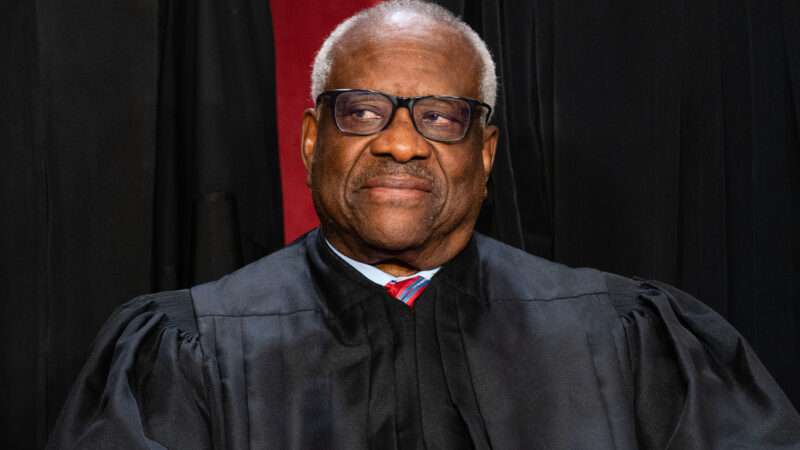
Hopes that the U.S. Supreme Court might strike down rent control this term were dashed today when the Court declined to take up the two remaining rent control cases on its docket. But a short statement from Justice Clarence Thomas otherwise agreeing not to take up the cases does provide rent control critics some optimism that the Court might reconsider the issue at a future date.
The cases, 74 Pinehurst LLC v. New York and 335-7 LLC v. City of New York, both involved New York City rental property owners' challenges to their state's stabilization regime and related New York City regulations implementing that regime.
The petitioners argued that the 2019 amendments to New York's rent stabilization law amounted to a physical taking because they prevented property owners from choosing their tenants or withdrawing their property from the rental market. They also argued that New York's post-2019 rent stabilization law amounted to a regulatory taking by tanking the value of their properties and removing avenues to "deregulate" (charge market rents on) their units.
Lower courts rejected these arguments. So, last spring, the landlord plaintiffs in both cases petitioned the Supreme Court to take up their case.
The fact that the two cases stayed on the Supreme Court's docket even after it had declined to take up another, higher profile, and more sweeping challenge to New York's rent stabilization law in October raised hopes that the justices might still take up these cases.
At a minimum, rent control critics offered some hopeful speculation that one or more of the justices might write a lengthy dissent to any court decision to not take up the cases that would outline how another rent control challenge could make its way back to the Supreme Court.
Neither of those things happened today. But today's order wasn't a total loss for rent control opponents.
Justice Clarence Thomas did issue a short statement saying that the "constitutionality of regimes like New York City's is an important and pressing question."
Ultimately, Thomas agreed with the Court's denial of cert, saying that petitioners' claims in their lawsuits "primarily contained generalized allegation." In order to evaluate their "as-applied" challenges, the Court would need to see more specific arguments about the circumstances of individual landlords.
For that reason, Thomas wrote, the 74 Pinehurst and 335-7 pleadings would "complicate" the Court's review.
"Any time you get something more than just a denial, I would say that gives you reason for optimism," says Mark Miller, an attorney with the Pacific Legal Foundation, which has supported constitutional challenges to rent control. "Oftentimes justices give statements like this to give you a roadmap for how to better tee up the issue."
In the meantime, however, New York City property owners are offered no relief from the state's rent stabilization regime.
Rent-stabilized owners argue the state's limits on rent increases are so punishingly strict that they can't finance basic repairs or turn over vacant units. The ongoing struggles of New York Community Bancorp, which lent heavily to rent-stabilized buildings, are only compounding this problem.
Without greater flexibility to raise rents or obtain private capital, "the future of rent-stabilized buildings is in the hands of the state government," said the Community Housing Improvement Program (CHIP) and the Rent Stabilization Association (RSA) in an emailed statement reacting to the Supreme Court's decision today. "Thousands of buildings housing hundreds of thousands of tenants are in financial distress. Without action, the homes of many hard-working New Yorkers will deteriorate.
CHIP and RSA had been plaintiffs in another challenge to New York's rent stabilization regime that the Supreme Court also declined to take up last year. Thomas' statement seems to have done little to raise their optimism about future rent control cases.
"We do expect there will be many more challenges to this law, which remains irrationally punitive," they said.
The post After Supreme Court Denies Cases, Clarence Thomas Offers Hope to Rent Control Critics appeared first on Reason.com.







